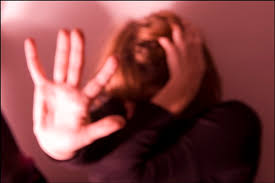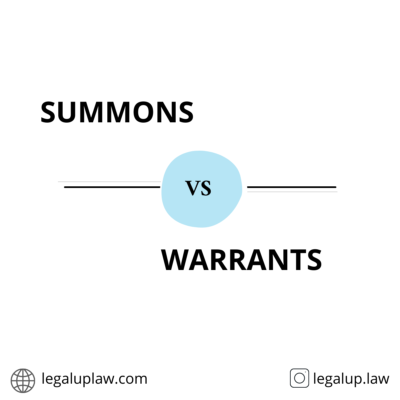Table of Contents
Introduction

Violence is a very wide term. It includes every type of act or behaviour that is used either to threaten any person or to injure the body of the other, in a way that can cause the death of a person.
Violence can also be defined as the unwarranted force used by the person against the other with the intent to cause injury to his life and property. In every sector of society, whether it is the working sector or household sector, violence against women can be observed, even though a woman is educated and working in a company she somehow has to go through some kind of violence. It is not necessary that violence includes physical violence, mental torture, and sexual assault in the workplace also come under the purview of violence.
What is meant by Domestic Violence?

Domestic Violence is defined under Section 3 of the Domestic Violence Act, 2005. Domestic Violence is a violation of human rights and is considered a criminal offence under Section 498A of the Indian Penal Code, 1860.
Domestic Violence can be defined as the force used by the family member towards another person who is in a close relationship, with the intent to cause injury either to his life or property. The violence can be made in either form Physical violence, financial violence, verbal and mental torture, and sexual violence.
Burning of the wife by the husband, dowry death, and wife battering can be considered as more examples of domestic violence.
Domestic violence is very common in Indian society and every third woman living in a domestic relationship is subject to violence either by her husband, brother, or any other male member of the family. It has been observed by the various census that most of the domestic violence cases are not even reported because of the fear the woman has from their own household members.
In the Domestic Violence Act, 2005 every woman is included under its purviews like mother, sister, wife, and daughter.
What is meant by Domestic Relationship?
The term Domestic Relationship can be defined as when 2 people are living in the same house making a relationship either by blood, marriage/live-in-relationship, joint family member, or adoption it will be termed as a domestic relation.
It is not necessary that every woman living in a liv-in-relationship will get the benefit of the Domestic Violence Act, 2005. There are some criteria that need to be fulfilled to take the benefits.
- The parties in the liv-in-relationship should live together and present themself as husband and wife in front of the society.
- They should have attain the legal age of marriage and should qualify all the requirments for a valid marriage as to live in such relatioship.
- The parties should be living voluntarily with each other from a reasonable period of time.
The mere living of parties for physical relationships or simply for household work will not allow the person to take the benefits covered under the Domestic Violence Act, 2005 on the ground that they were living in a liv-in-relationship.
The above-mentioned grounds (1, 2, and 3 need to be proved to take benefit under the Domestic Violence Act, 2005).
What is the Applicability of the Domestic Violence Act, 2005?

The Domestic Violence Act, 2005 applies to all the states and UT of India except Jammu and Kashmir. This act is of a civil nature, which means it provides relief to the aggrieved women in the form of compensation and other protection unlike in criminal matters where reliefs are provided to the accused in the form of punishment.
The Domestic Violence Act, 2005 covers every kind of violence that a woman has to go through in her domestic relationship.
Who can file a complaint under the Domestic Violence Act, 2005?
Every woman who suffered from domestic violence in her domestic relationship or any person on her behalf can file a complaint under this act against the person who used such force against the woman.
In case the woman makes the complaint under this act, her children can also be regarded as the co-applicants in the complaint. This is because it is often seen that children are also subjected to such violence by the offender.
A minor child either male or female also has the provision under this act to file a complaint, the mother of the guardian can file the complaint under this act on behalf of his/her child.
The complaint can be filed against whom?
The complaint can be filed against any male member of the majority age who is in a domestic relationship with the woman.
Any person who is in relation to the husband or the male party can come under the preview of this complaint, and any person who is in relation to a woman can also come under that complaint.
Where would the complaint about Domestic Violence will be filed?

The aggrieved party or any person on her behalf can file a complaint to the Protection officer of the area. The aggrieved person on her own or any person on her behalf can present the complaint to the magistrate officer of the district.
The knowledge to present the complaint to the magistrate will be given by the protection officer. The complaint regarding domestic violence will be filed under section-498A of the IPC.
The magistrate is one of the highest authorities who will give orders to the respondent depending on the situation and circumstances of the case.
Note- The Relief provided under the Domestic Violence Act, 2005 can also provide under a plea made for divorce and also for maintenance. It is not compulsory that the plea for domestic violence will be made differently, it can be made along with the plea for maintenance and divorce also.
Procedure of filing a complaint for Domestic Violence
- Inform the Protection officer about the violence, the protection officer would inform the woman about her rights covered under the DV Act, 2005 and will prepare the complaint along with the medical report showing the damages.
- The Protection officer will present the complaint of the woman to the magistrate officer of the area where the woman is living, to the place where the respondant is living, and the place where domestic violnece has taken place.
- After the complaint has been received by the magistrate, he will summon both the parties for the hearing of the matter. The matter would be heard within 60days from the date the complaint has been received by the magistrate.
- After hearing the matter, the magistrate beleives that domestic violence against the woman has taken place, he will give the following order depending on the circumstances and facts of the case.
Orders that can be issued by the Magistrate in the plea filed under Section 498A of the IPC.

Protection Order
After the plea has been made for domestic violence to the magistrate, the magistrate after being satisfied that violence against the women has taken place or is likely to take place in the near future, can pass a protection order in favour of the aggrieved party and prohibit the respondent from the following acts-
(a)Restricting the respondent to enter the place where the aggrieved party is working and also from the place where her children are studying or working.
(b)Restricting the respondent to make any kind of communication via phone or written letters with the aggrieved party.
(c)Gives the order to the respondent to return all the assets which were given to him along with the Stridhan to the aggrieved party, the other assets where they have joint control of the assets will be disposed of by the magistrate and will be distributed among both accordingly.
(d)Restricting the respondent from making any kind of violence to the dependent of the aggrieved party, or communication with the dependents will also be restrictive.
Residence Order
The magistrate on being satisfied that domestic violence has taken place against the women will order the respondent for the following things-
(a)The magistrate will restrict the respondent from dispossessing the aggrieved person from the shared household and restrict the respondent from making any kind of disturbance in the house where the aggrieved party is living.
(b)The magistrate will order the respondent to move himself to another place where he can reside.
(c)The magistrate will order the respondent and his relatives to restrict themselves from entering the place where the aggrieved party is living.
While making the order for the residence for the aggrieved party, the magistrate takes into consideration that the aggrieved party will get the same comfort in accommodation as the respondent is getting.
Monetary Relief
The magistrate on being satisfied that domestic violence has taken place against the aggrieved party and the party is not financially well, the magistrate will give the order for monetary relief to the aggrieved person.
The monetary relief will include Losing of income, medical expenditure, and expenses caused by the destruction/removal or damage of property.
The expenses of education and maintenance of the children will also be included in the monetary relief.
Custody order
The magistrate can order the custody of the children temporarily to the aggrieved party or to the person who has made the application on her behalf.
The magistrate can order or grant a right to the respondent to visit and meet the children on a periodic basis, but if the magistrate finds that it would be harmful to the children to meet the respondent, then he can deny the right to the respondent.

Compensation order
The magistrate can order the respondent to make the compensation for the injuries suffered by the aggrieved party due to the domestic violence that he has inflicted upon her.
These compensations would be given for the mental torture, emotional distress that she has suffered and the physical cruelty she has suffered under the domestic violence.
The copies of the final order of the magistrate would be given to both the parties with no fees charged on the same, and a copy of the same would also be given to the police in charge of the case.
Conclusion
Violence against anyone is unlawful and is a breach of human rights of the individual, whether it is done by a male towards a lady or a lady is using physical force against a male, in any of the ways, the force used is wrong. There are various methods by which we can solve the problem and save the person being subjected to violence. But we have seen people using force not only in their domestic relations but also for petty small things on the roads.
But from ancient times women, always have been deprived of respect, and domestic violence against them was used for a very long time. This did get better with times when the government was able to provide justice to these women as they also deserve to live with liberty. To tackle down the same section-498A of IPC was added to solve the problem. And, a separate statute was framed revolving around the violence relating to women, which to some extent have proved to work for the benefit and upliftment of such women in the society. This also includes various helplines made especially for reporting domestic violence by them.
Frequently asked question-
Question. Even after continuous abuse from the accused, the victim does not go away from the abuser and even if she goes away, she comes back to the abuser. Why is that?
Answer. The matter related to domestic violence is very critical from the perspective of a woman and for her children because the financial condition of most of the women is very poor. They have the fear that if they will complain of the abuser regarding the same to the authority there will be no immediate source of income for her to maintain herself and her children and also afford the fees of the lawyer if any is hired. The maintenance is allotted only after due proceedings by the court of justice and it takes time for that to complete. Along with all this, the victim has the fear of death and more cruelty both mental and physical, this is the reason why the victim returns back to the abuser, or she never complains about the same.






